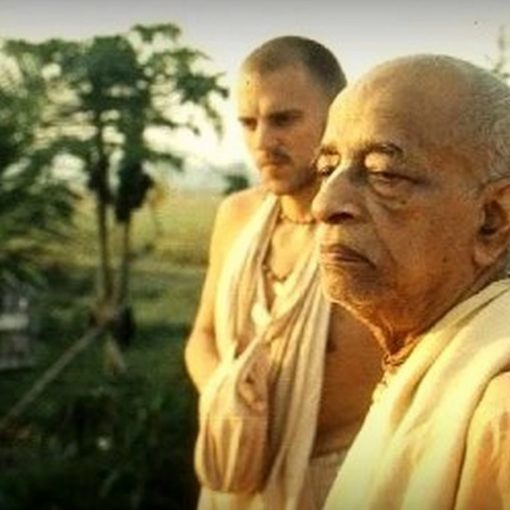The child’s mother, Sunīthā, was the daughter of death personified. Generally the daughter receives the qualifications of her father, and the son acquires those of the mother. So, according to the axiomatic truth that things equal to the same thing are equal to one another, the child born of King Aṅga became the follower of his maternal grandfather. According to smṛti-śāstra, a child generally follows the principles of his maternal uncle’s house. Narāṇāṁ mātula-karma means that a child generally follows the qualities of his maternal family. If the maternal family is very corrupt or sinful, the child, even though born of a good father, becomes a victim of the maternal family. According to Vedic civilization, therefore, before the marriage takes place an account is taken of both the boy’s and girl’s families. If according to astrological calculation the combination is perfect, then marriage takes place. Sometimes, however, there is a mistake, and family life becomes frustrating.
It appears that King Aṅga did not get a very good wife in Sunīthā because she was the daughter of death personified. Sometimes the Lord arranges an unfortunate wife for His devotee so that gradually, due to family circumstances, the devotee becomes detached from his wife and home and makes progress in devotional life. It appears that by the arrangement of the Supreme Personality of Godhead, King Aṅga, although a pious devotee, got an unfortunate wife like Sunīthā and later on a bad child like Vena. But the result was that he got complete freedom from the entanglement of family life and left home to go back to Godhead.




